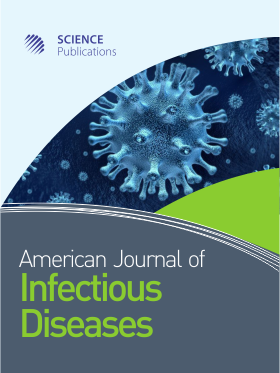Efficacy of Pravastatin in Non-Nucleoside Reverse Transcriptase Inhibitor (NNRTI) and Protease Inhibitor (PI)-based HAART in HIV-Infected Patients
- 1 Texas Tech University Health Sciences, United States
Abstract
Pravastatin has generally been considered a safe and effective option for HIV-infected patients on highly active antiretroviral therapy (HAART). However, pravastatin concentrations are known to significantly decrease with concomitant efavirenz (EFV) use. Currently there are no studies determining if these reductions in pravastatin possibly translate into an attenuation of its lipid lowering efficacy when used in HIV-infected patients on non-nucleoside reverse transcriptase inhibitor (NNRTI)-based HAART. To evaluate the differences in the lipid lowering efficacy of pravastatin for the treatment of dyslipidemia in HIV-infected patients on NNRTI-based HAART compared to protease inhibitor (PI)-based regimens. A single center, retrospective evaluation of a comprehensive electronic HIV registry that identified HIV-infected, Veterans Affairs (VA) patients who received pravastatin 20 mg plus NNRTI or PI-based HAART from January 1997 to November 2006 who met the strict criteria for inclusion. A total of 18 patients [NNRTI (n = 7) and PI (n = 11)] met the strict criteria for inclusion. In HIV-infected patients taking NNRTI-based HAART there was a reduction in TC by -10.1%, LDL by -12% and non-HDL by -12.2% within 6 months after starting pravastatin 20 mg. In HIVinfected patients taking PI-based HAART, there was a reduction in TC by -10.1%, in LDL by -21.1% and in non-HDL by -13.8% within 6 months after starting pravastatin 20 mg. In both groups, only one additional patient achieved their patient specific lipid goals. In either group these reductions were seen without any apparent adverse drug events or compromise to virologic or immunologic control. This initial evaluation suggests that pravastatin’s efficacy may be attenuated with NNRTIs versus PI-based HAART, possibly due to known reductions in pravastatin concentrations when administered with NNRTI-based regimens. These effects were seen without any apparent compromises to safety and should be validated in a prospective study.
DOI: https://doi.org/10.3844/ajidsp.2008.124.130

- 5,568 Views
- 3,685 Downloads
- 5 Citations
Download
Keywords
- Statins
- lipids
- highly active antiretroviral therapy
